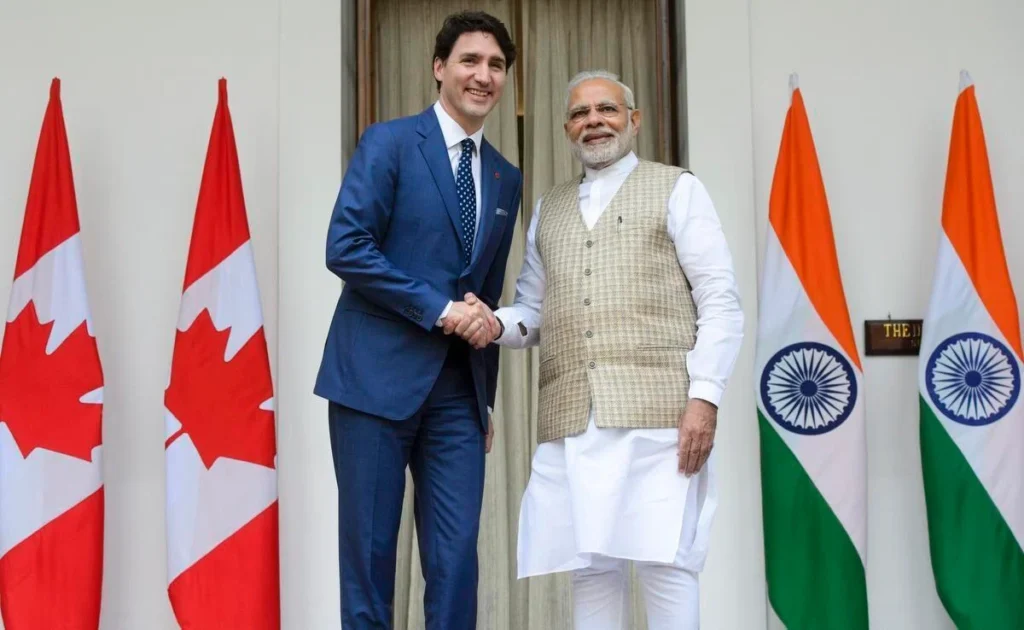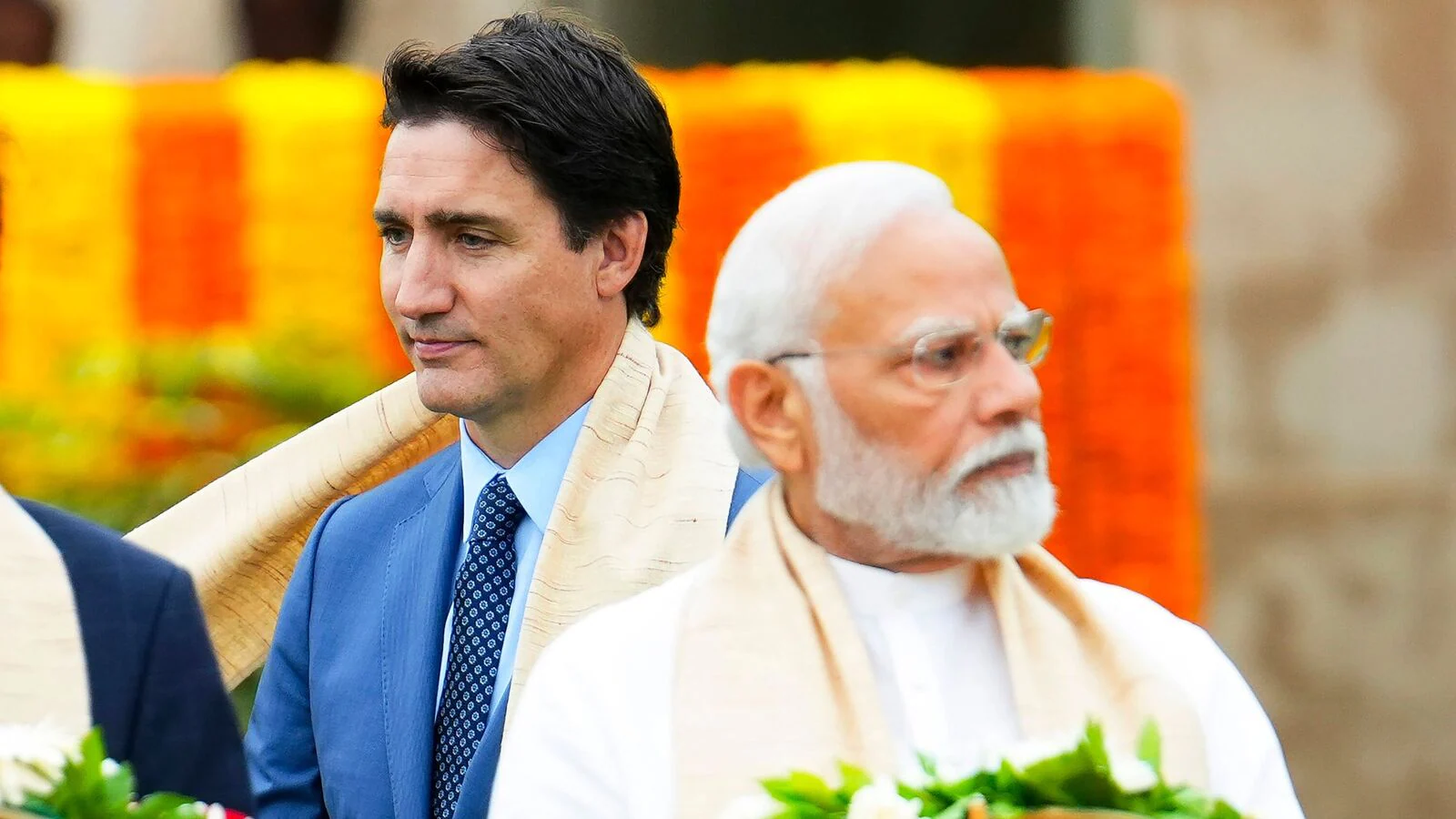Canada’s Foreign Minister has reaffirmed that the expulsion of Indian diplomats was grounded in concrete evidence, marking a significant escalation in tensions between the two nations. This development follows Canadian Prime Minister Justin Trudeau’s assertion that India committed a “grave error” by engaging in clandestine activities on Canadian soil, posing a threat to public safety.
Trudeau’s allegations centered on Indian government officials’ involvement in covert information gathering and coercive tactics targeting South Asian Canadians. The Royal Canadian Mounted Police (RCMP) corroborated these claims, citing instances of violent criminal activity, including murder and extortion, perpetrated by Indian agents.
Investigations uncovered that Indian diplomats and consular officials stationed in Canada exploited their official capacities to engage in clandestine operations, collecting sensitive information for the Indian government. This alleged misconduct prompted Canada’s decisive action against Indian diplomatic personnel.
In retaliation, India removed its High Commissioner and diplomats from Canada, citing the “baseless targeting” of its diplomats and personnel.
. The Ministry of External Affairs subsequently expelled six Canadian diplomats, including Acting High Commissioner Stewart Ross Wheeler and other senior officials.

The deteriorating relations between India and Canada are intricately linked to the probe into Khalistani extremist Hardeep Singh Nijjar’s assassination on Canadian soil. Critics argue that Trudeau’s government is prioritizing vote bank politics, attempting to appease Canada’s Sikh community. This perspective suggests that domestic political considerations are influencing Canada’s foreign policy decisions.
The international community is closely monitoring the situation, recognizing the far-reaching implications of this diplomatic standoff. As tensions continue to escalate, both nations must navigate the complex web of allegations, evidence, and geopolitical considerations to find a resolution.
Key factors contributing to the crisis include:
- Allegations of Indian government officials’ involvement in clandestine activities
- RCMP’s investigation into violent criminal activity by Indian agents
- Expulsion of Indian diplomats from Canada
- India’s retaliatory measures against Canadian diplomats
- underlying tensions around the Hardeep Singh Nijjar inquiry.
The complexity of the situation emphasizes the importance of delicate diplomacy and cooperation. As the international community observes the developments, it remains essential to consider multiple perspectives and prioritize constructive dialogue.
Timeline:
- Canadian Prime Minister Justin Trudeau announces expulsion of Indian diplomats
- India dismisses its high commissioner and ambassadors from Canada.
- Ministry of External Affairs expels six Canadian diplomats
- Ongoing tensions and diplomatic standoff
Experts emphasize that resolving this crisis requires a thorough examination of evidence, open communication channels, and a commitment to upholding diplomatic norms. The international community awaits a peaceful resolution, recognizing the significance of India-Canada relations in the global landscape.
Read More: India lost one of its iconic legends Ratan Tata, Chairman of Tata Sons at 86 in Mumbai Hospital
Analysts suggest that Canada’s actions may have been motivated by a desire to demonstrate its commitment to protecting its citizens and sovereignty. “Canada is sending a strong message that it won’t tolerate foreign interference on its soil,” said Dr. Amrita Jash, a specialist in international relations.
However, others argue that the move may have unintended consequences. “Expelling diplomats can escalate tensions and limit diplomatic channels,” cautioned Dr. Rajiv Nayan, a foreign policy expert.
India-Canada Relations: A Complex History
The current crisis is not the first instance of tension between India and Canada. Historical disagreements over issues like Khalistani separatism and terrorism have contributed to periodic strains in the relationship.
Despite these challenges, bilateral trade between India and Canada has grown significantly, with Canada emerging as a key partner for Indian businesses.
Way Forward
To resolve the crisis, experts recommend:
- Diplomatic engagement: Reviving dialogue channels to address concerns and clarify evidence.
- Investigative cooperation: Collaborative investigations into alleged clandestine activities.
- Sovereignty respect: Acknowledging each nation’s right to protect its citizens and territory.
The diplomatic standoff between India and Canada has significant implications for global relations, international law, and national security. As tensions continue to simmer, finding a peaceful resolution requires careful consideration of evidence, diplomatic norms, and the complexities of bilateral relations.
Key Takeaways:
- Expulsion of Indian diplomats from Canada sparks diplomatic crisis
- Allegations of clandestine activities and violent criminality
- India retaliates with expulsion of Canadian diplomats
- Experts call for diplomatic engagement and investigative cooperation
- Bilateral relations face significant challenges amid growing tensions

